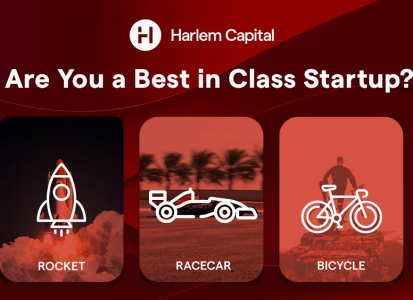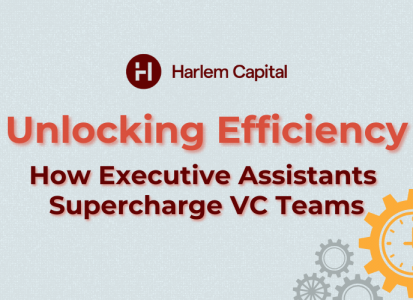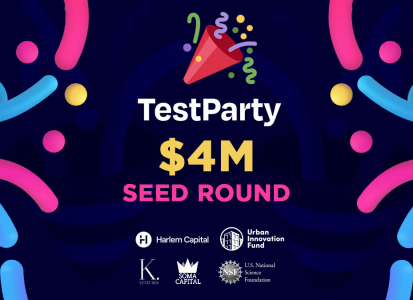Harlem Capital Interviews Atima Lui — Founder and CEO of NUDEST
by Harlem Capital
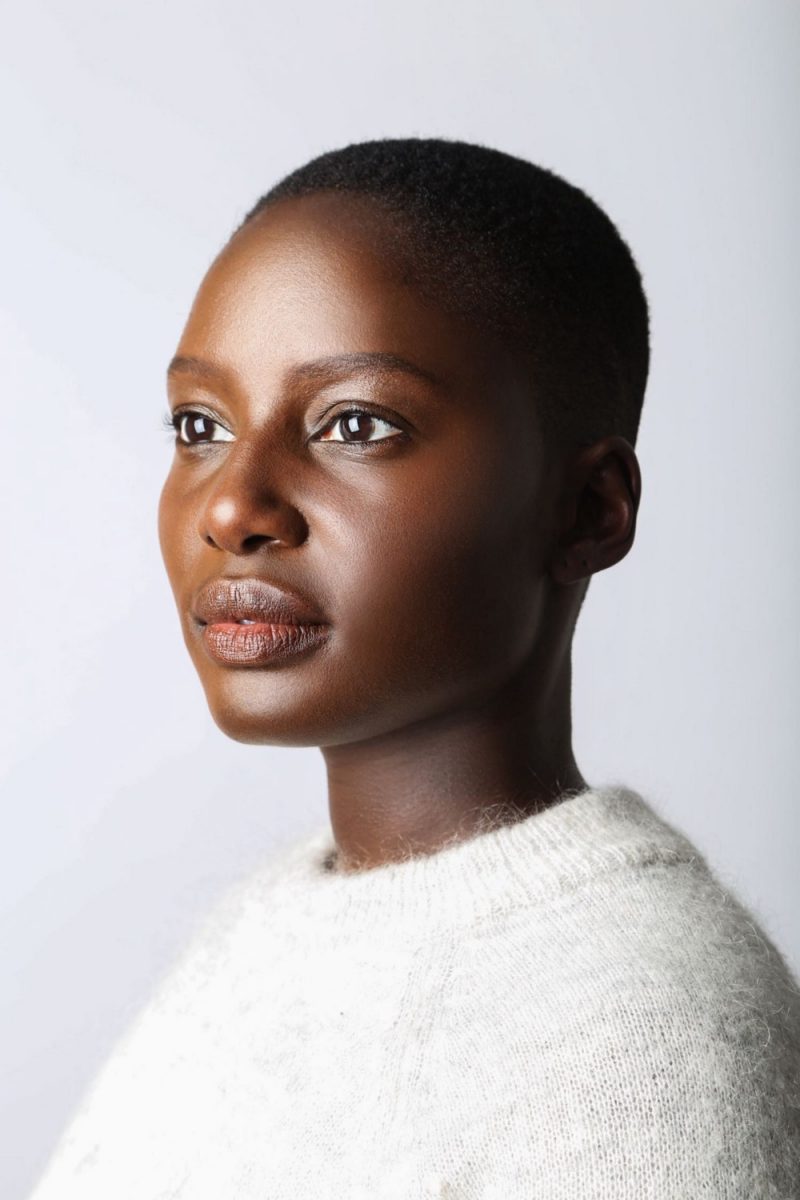
This interview is part 2 of Harlem Capital’s current series showcasing key lessons from the founder’s journey to build, grow, and fund their business. This interview is with Atima Lui, founder and CEO of NUDEST. Since its founding in 2012, NUDEST has been on a mission to redefine the standard of beauty worldwide to match the full range of diversity in everyone’s skin.
This interview has been edited and condensed
On Starting NUDEST
Harlem Capital (“HC”): How did you make your way to starting NUDEST?
Atima Lui (“AL”): I started NUDEST while I was in my final semester at Harvard Business School receiving my MBA. I had a job offer on my desk that was everything that I ever wanted and had been building my career towards. But, when it came time to sign the offer, I had this weird feeling like, I just wasn’t super pumped about doing this, even though I thought it was what I wanted. So I started thinking about what am I particularly passionate about. I had dabbled in entrepreneurship in the past. I did run a full service hair and nail salon while I was in college at Washington University in St. Louis and saw how startups are incredibly difficult. They are something that you keep building and pushing towards. Oftentimes it feels illogical and exposes your weaknesses as a leader and where you need to develop.
For me, I needed to find something that would be particularly passion-focused to keep me motivated though the journey.
AL: So I went back to thinking about my personal struggles and issues that I’ve had with beauty standards. I’m a very dark-skinned woman. I grew up in Topeka, Kansas where no one else really looked like me except my sister and my parents. And I started doing some research into the color nude and came across a really interesting statistic that 84% of global population does not match the traditional definition of the color nude. From there, I took a independent project and did further research and development. I launched an MVP [minimum viable product], which was a basic website I coded myself, that allowed customers to filter fashion items in four shades of nude. I invited 300 classmates to the MVP and it went viral. We had 1,500 people that were trying to access it in about a week. For the past three years we’ve pivoted and looked at different ways to go after this problem, but have landed on selling our skin tone matching technology, to beauty brands specifically, where customers really struggle to find products that match their skin tone. We’ve seen some significant traction with that.
On Building Their Product
HC: How did you start to define NUDEST product offering?
AL: I graduated from HBS in 2016 and then our CTO, my brother, graduated from Morehouse College with a degree in Computer Science the same summer. In summer 2016, we launched the first version of our skin tone matching technology. It’s always been called NUDEMETER™, but it played a backseat role on the website. The website was retail-focused where we dropshipped fashion items and used NUDEMETER™ as this widget on the side to filter between products. The business model was about driving product sales. But we found that we continued to get a lot of press about the technology and realized that really we would need to drive millions of sales from dropshipping to drive revenue. So we decided to focus on the technology specifically because building technology and running a dropshipping retailer are two separate skills. And when you’re a startup your resources are constrained not just in terms of your money, but also in terms of your time as a small team.
HC: What did you do to test for Product Market Fit?
AL: First, we went to the brands who had agreed to be on our website and asked ‘hey do you actually want this technology on your website?’ That’s when we learned how to ship the technology, about licensing fees, about the user experience on the site and that was incredibly invaluable. We also entered a pitch competition with the National Black MBA Association called the Scale-Up Pitch Challenge, pitching the concept of licensing this technology in the fashion industry.
We ended up winning 1st place and that told us we were really on to something. We’re a SaaS company now.
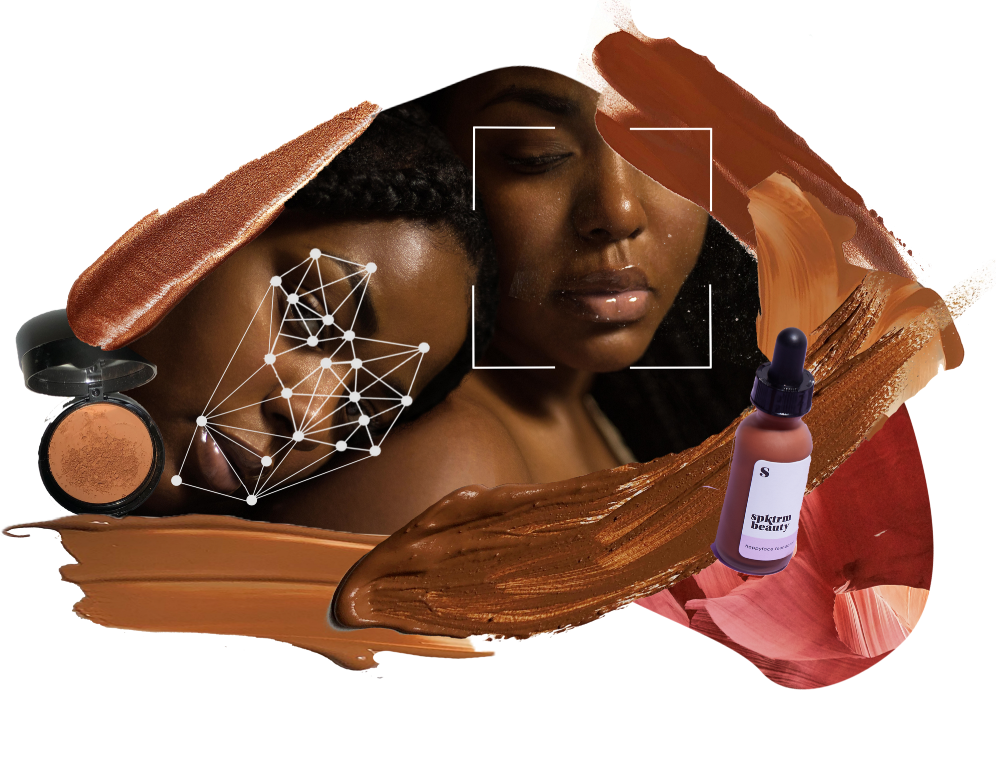
HC: What are some of the key insights that you learned?
AL: We learned that while people were interested in the need for skin tone matching technology for lingerie and hosiery, our existing customers, the pain point was greatest in makeup, not in fashion. I discovered that by having conversations with people in the beauty industry. And the timing for skin tone matching technology in makeup has never been better. We have seen that thanks to Rihanna’s Fenty Beauty and demographic changes where people of color will be the majority by 2045 according to the US Census. The beauty market has now produced more shades of foundation than it ever has before.
So with all of these trends it’s very clear that now the industry is ready for this, that customers want this, and also that they don’t want to shop only in store.
They want to shade match from their living room couch, just like they can with other things that they buy. So with all of these trends coming together, I’m really excited because now we have our first pilot contracts that are being signed from indie companies, brands, and even Fortune 500 Companies. That’s been the journey along the way to getting to product market fit.
On People, Company Values, and Culture
HC: NUDEST’s website mentions that your team is predominantly composed of underrepresented folks in tech. How were you able to achieve that?
AL: It’s funny because, being an underrepresented founder often times can seem like a handicap that I have as I build my company. But it also means it’s an advantage that I have when it comes to building and leading a team that is also underrepresented in the technology industry.
Our first team member was my brother and I’m very fortunate that someone in my family had the technical skill to do what we wanted to do at NUDEST. He’s a Ph.D candidate and a researcher, so he’s always looking at research papers and finding people who are working on artificial intelligence and light balancing. We’re always keeping the skill at the forefront, but then are always pleasantly surprised and see a mutual fit when that person is also an underrepresented minority in some way. We find that they gravitate to our message. And by staying constantly authentic about ‘hey, I’m doing this because I experienced this problem of not finding products, because I’m a dark skinned person’, when I say that, I find that the people who respond to that message are the ones who want to work for us. So it kind of becomes a really helpful and symbiotic process.
HC: What are some of the other methods you’ve used?
AL: I might speak at a conference for women or a panel for black entrepreneurs. People come up to me and that’s how we might be connected. Then we’re able to assess if their skills are a good fit from there. We’ve also been very fortunate to have a lot of media attention rather early because of our mission — to change the standard of beauty to match the full range of diversity in human skin. So with a mission like that, and changing trends around inclusivity, diversity within the tech industry, and that we’re building artificial intelligence that needs to not have bias, all of these things are trends that have been really helpful to supporting and being able to help me build a company that looks as diverse as it does.
HC: As you’ve built NUDEST’s team, what kind of traits do you look for in new team members?
AL: So, the thing about startups is that they’re really hard [laughs]. This is not my first rodeo, I was on a founding team of a beauty company while I was in business school. I later decided not to move forward with them, but it was an awesome experience and it taught me what hard looked like.
Start up environments are constantly changing. You need to be very agile. Problems are constantly arising and you have to put out fires, calmly and logically, and make decisions quickly.
So, in terms of skills that we look for in people, we look for people that are comfortable in that fast-paced, ambiguous environment. But on the flip side, you also need to support people that are in a demanding environment like that. Because at the end of the day, I need rest, I know my team needs rest, and then also emergencies and unexpected things in your personal life come up as well.

HC: What are some of the core values that define NUDEST’s company culture?
AL: One of our values: family comes first. If anything on the personal side happens, we cover for that person and it’s totally fine if they’re out for that day, no matter what. Because if your family and your support system is not in working order, you can’t do the difficult work that you need to do every day. The other thing that we do too is that we recognize that productivity is not measured by how much facetime you have in the office. We make sure that people have the latitude to work the hours that work for them, from wherever works for them, as long as they are getting their work done on time and communicating regularly via Slack. The third thing that’s really important for our culture is communication. My team is not all in New York. We have 4 people in New York and then everyone else is scattered as far away as Canada, Belarus, or even traveling. I view my job as getting out of their way, supporting them radically, and making sure that there are support systems so they can do their best work.
HC: What are you reading or listening to right now?
AL: I like to read novels just for fun, that’s like my complete escape. I love reading Phillippa Gregory novels. She writes historical fiction about the British Monarchy and it’s usually very feminist in nature. So I’m like reading about princesses who have a lot of power and it’s a fun world to dig in. In terms of podcasts, I absolutely love, Unf*ck Your Brain by Kara Loewentheil. I recommend it to both men and women and gender non-conforming people alike, even though her audience is predominantly women. But it’s all about learning how to manage your mind, emotions, thoughts, and feelings. I feel like she is teaching me how to be a Jedi. Learning how to choose your thoughts so that you can manifest your dreams and take massive action towards those goals, that has been really awesome and helpful for me.
